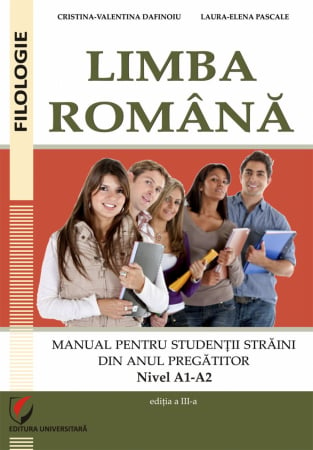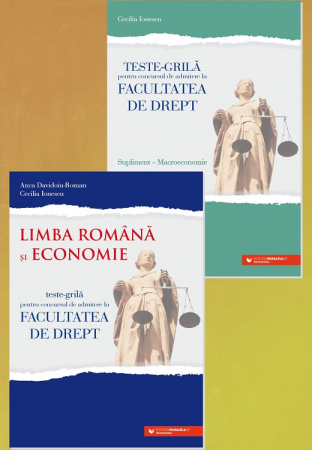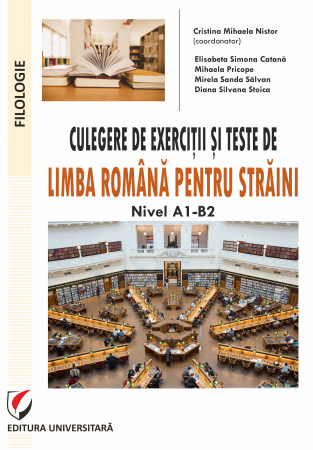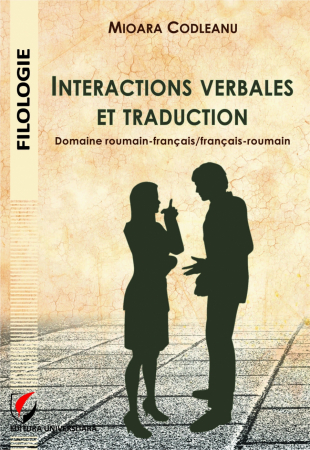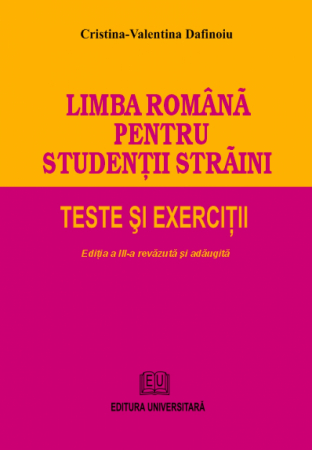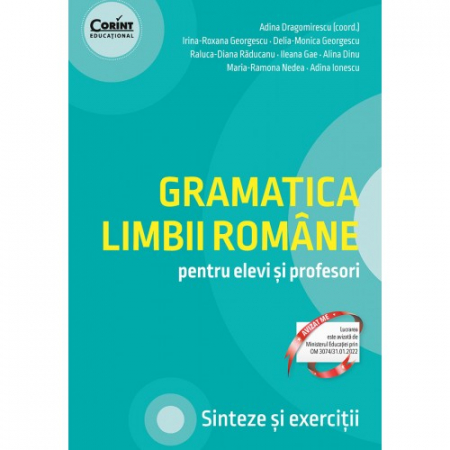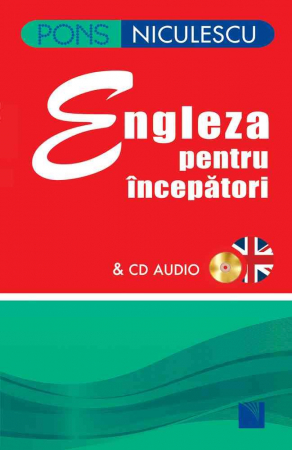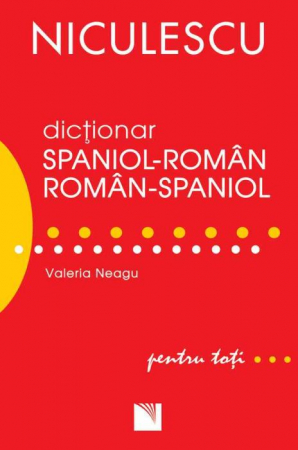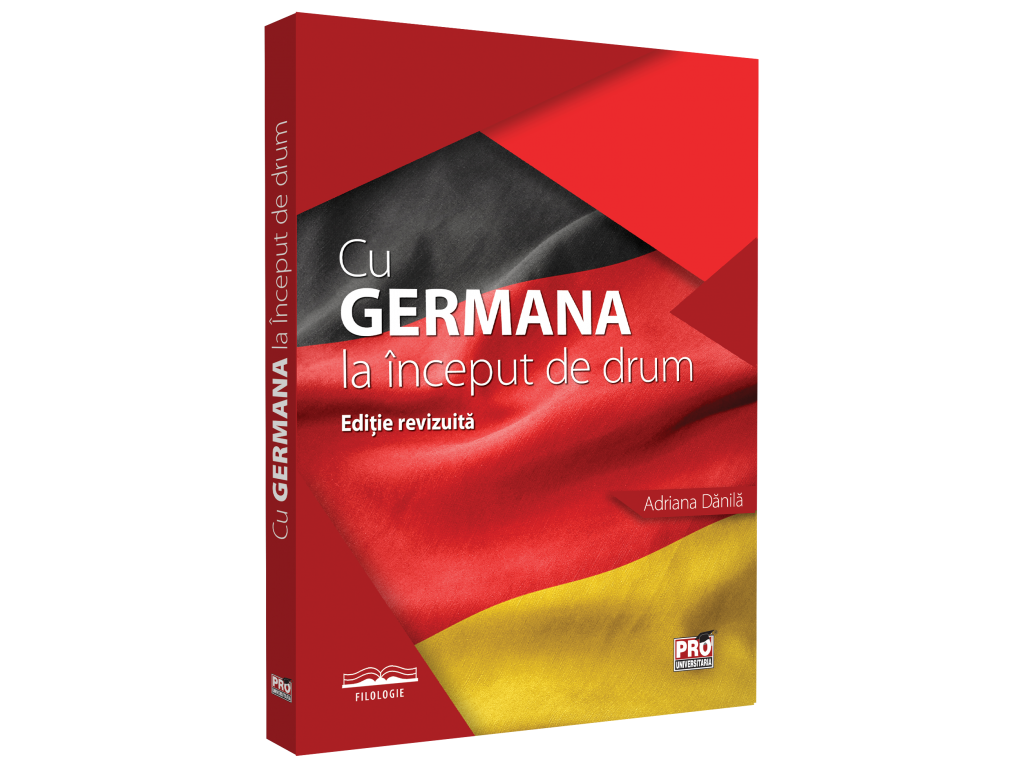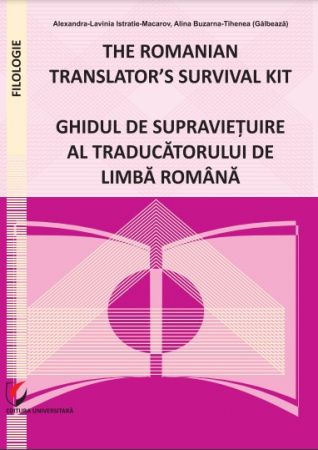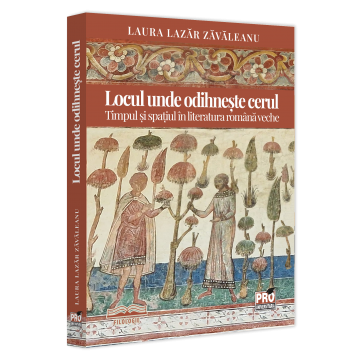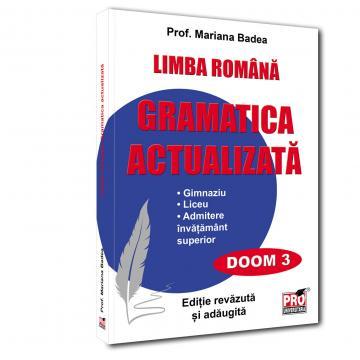Manuscript proposals: [email protected] / 0745 204 115 //// Tracking orders Individuals / Sales: 0745 200 357 / Orders Legal entities: 0721 722 783
ISBN: 978-606-28-1377-2
DOI: https://doi.org/10.5682/9786062813772
Publisher year: 2021
Edition: I
Pages: 266
Publisher: Editura Universitară
Author: Alina Elena Sora
Product Code:
9786062813772
Do you need help?
0745 200 357
- Description
- Download (1)
- Authors
- Content
- More details
- Reviews (0)
Designed as an in-depth approach to his work, this paper is based on the creation of a writer who in the first stage of his artistic career rallied to socialist ideas, later relying on freedom and truth as a result of persecution and isolation to which he is subjected. to the exponents of the Soviet totalitarian regime - inevitable consequences borne by writers who showed enough courage not to follow ideological directives. Characterized by an obvious tragedy, the work of Vasili Semionovici Grossman belongs to the sphere of dehumanization literature. Translated into many languages and sold in large numbers, especially in the West, Grossman's creation captured the attention of the general public and critics, but this phenomenon occurred relatively recently, due to the inclusion of the writer by Soviet ideologues. awkward authors. In fact, in the Romanian cultural space, only after 1990 there is a slight increase in public interest in the creation of Vasili Grossman, given the fact that starting this year the Romanian reader has access to his major works, namely Panta rhei and Life and Destiny . If we take into account the aspect of the critical reception of Grossman's work in Romania, it is necessary to recognize the deficient side of this phenomenon which is distinguished only by sporadic actions. Consequently, one of the premises of this volume is the analysis in terms of detail of the prose of the Russian writer, especially the two fundamental works - Life and Destiny and Panta Rhei - from the perspective of the literary, historical and social context in which it falls. approached, but also of its reception, in Romania, in the West, but also in the Russian space. This approach became possible by resorting to studies of literary criticism in Romanian, Russian, English and also, by comparison with other works, intertextuality was used in this sense as the main tool of literary analysis. This method allowed a clearer picture of the analyzed literary phenomenon, of the situation of Grossman's work in the respective literary context, but also of its understanding in the historical, social, cultural and psychological conjuncture of the bloody twentieth century.
Representing the revised version of the doctoral thesis The Crisis of Identity Landmarks in Totalitarian Society in Vasili Grossman's prose, the paper proves a topicality that can be argued by the subject itself in thought and action. Grossman's literature is a literature revealing the atrocities of the two totalitarian regimes - Soviet and Nazi - and, although there are numerous documents, testimonies, analyzes and studies on this period in human history, their overwhelming number does not diminish the severity of the diagnosis. which Vasili Grossman establishes in his work. On the contrary, their importance has increased due to their literary value, to which is added the lucidity and journalistic rigor with which the events are captured and reproduced.
Representing the revised version of the doctoral thesis The Crisis of Identity Landmarks in Totalitarian Society in Vasili Grossman's prose, the paper proves a topicality that can be argued by the subject itself in thought and action. Grossman's literature is a literature revealing the atrocities of the two totalitarian regimes - Soviet and Nazi - and, although there are numerous documents, testimonies, analyzes and studies on this period in human history, their overwhelming number does not diminish the severity of the diagnosis. which Vasili Grossman establishes in his work. On the contrary, their importance has increased due to their literary value, to which is added the lucidity and journalistic rigor with which the events are captured and reproduced.
-
Vasili Grossman. Truths told through tears
Download
ALINA ELENA SORA
PRELIMINARIES / 9
CHAPTER I: TOTALITY REGIMES OF THE TWENTIETH CENTURY / 24
I.1. Totalitarianism - General considerations / 24
I.1.1. The origin and trajectory of totalitarian regimes / 28
I.1.2. Characteristics of totalitarianism / 32
I.2. Nazism and Stalinism: Similarities and Differences / 35
I.2.1. The Gulag and the Holocaust - "two absolute shames of the twentieth century" / 38
I.2.2. Totalitarianism "our everyday" in the Romanian space / 47
CHAPTER II: VASILI GROSSMAN - DESTINY AND OPERA / 51
II.1. Vasili Grossman - foray into the existential and literary universe / 51
II.1.1. Childhood, the educational and professional route / 51
II.1.2. The literary debut under the sign of totalitarianism / 55
II.1.3. 1941 - 1945 - A writer on the front / 59
II.1.4. The conflict with the totalitarian Soviet regime: from hero to enemy of the people / 63
II.1.5. The political "conversion" or destiny of a heretic / 68
II.2. Aspects of the poetics of Vasili Grossman's prose / 72
II.2.1. Peculiarities of style and language in the prose of Vasili Grossman / 72
II.2.2. The use of tropes as a way to enhance the impression in the literary creation of Vasili Grossman / 87
II.2.3. Grossman portrait art / 94
CHAPTER III: SPECIFICITY AND MULTIPURPOSE IN SHORT PROSE BY VASILI GROSSMAN / 98
III.1. Brief diachronic presentation of short prose / 98
III.1.1. The Soviet female ideal in the story In the city of Berdicev / 103
III.1.2. Life in the totalitarian state reflected in the stories Small Life and Elanul / 107
III.1.3. Young and old - the mechanisms of betrayal in the Soviet space / 110
III.1.4. The archetypal dimension of the Russian soldier in the stories Through the eyes of Chekhov and Vlasov / 113
III.1.5. "The Final Solution to the Jewish Problem" in the Treblinka Hell / 117
III.1.6. The biblical myth of the fratricide in the story of Abel, August 6 / 120
III.1.7. Two letters from Grossman to his mother - or human destiny in human times / 123
CHAPTER IV: TOTALITARISMS OF THE TWENTIETH CENTURY REFLECTED IN THE ROMANIAN LIFE AND DESTINY / 126
IV.1. Life and destiny - "the novel of freedom and the Battle of Stalingrad" / 126
IV.1.1. The destiny of a manuscript / 126
IV.1.2. The textual and conceptual architecture of the novel Life and Destiny / 131
IV.1.3. The war in the vision of the writers Lev Tolstoy and Vasili Grossman / 153
IV.2. Stalingrad - the "capital" of World War II / 160
IV.2.1. Battlefield - Taritin, Stalingrad, Volgograd / 160
IV.2.2. The importance of the Battle of Stalingrad / 162
IV.2.3. The novel Life and destiny transposed into theater and cinematography / 168
CHAPTER V: THE ROMAN PANTA RHEI - A RADIOGRAPHY OF THE SOVIET PRISON UNIVERSE / 175
V.1. Panta rhei - „last heresy” / 175
V.1.1. Zabolotskaia Manuscript / 177
V.1.2. Introductory study: Lenin - Pros and Cons / 181
V.2. The conceptual structure of the novel Panta rhei / 183
V.2.1. The road to self - an initiatory journey / 185
V.2.2. The issue of space in the novel Panta rhei / 196
V.2.3. Time, History and Freedom / 203
V.3. "Donosčiki" - between motivation and responsibility / 216
V.3.1. The psychological mechanisms of denunciation ... / 220
CHAPTER VI: RECEPTION OF VASILI GROSSMAN'S WORK IN THE ROMANIAN AND WESTERN CULTURAL SPACE / 224
VI.1. Receiving the work of Vasili Grossman in Romania / 224
VI.1.1. Translations from the prose of Vasili Grossman in Romania / 224
VI.1.2. Vasili Grossman's prose in Romanian exegesis / 228
VI.2. Receiving the work of Vasili Grossman in the West / 236
VI.2.1. Translations from the prose of Vasili Grossman in the western cultural space / 236
VI.2.2. Critical reception of Vasili Grossman's work in the West / 240
CONCLUSIONS / 243
BIBLIOGRAPHY / 246
GENERAL THEORETICAL BIBLIOGRAPHY / 250
ANNEX / 264
CHAPTER I: TOTALITY REGIMES OF THE TWENTIETH CENTURY / 24
I.1. Totalitarianism - General considerations / 24
I.1.1. The origin and trajectory of totalitarian regimes / 28
I.1.2. Characteristics of totalitarianism / 32
I.2. Nazism and Stalinism: Similarities and Differences / 35
I.2.1. The Gulag and the Holocaust - "two absolute shames of the twentieth century" / 38
I.2.2. Totalitarianism "our everyday" in the Romanian space / 47
CHAPTER II: VASILI GROSSMAN - DESTINY AND OPERA / 51
II.1. Vasili Grossman - foray into the existential and literary universe / 51
II.1.1. Childhood, the educational and professional route / 51
II.1.2. The literary debut under the sign of totalitarianism / 55
II.1.3. 1941 - 1945 - A writer on the front / 59
II.1.4. The conflict with the totalitarian Soviet regime: from hero to enemy of the people / 63
II.1.5. The political "conversion" or destiny of a heretic / 68
II.2. Aspects of the poetics of Vasili Grossman's prose / 72
II.2.1. Peculiarities of style and language in the prose of Vasili Grossman / 72
II.2.2. The use of tropes as a way to enhance the impression in the literary creation of Vasili Grossman / 87
II.2.3. Grossman portrait art / 94
CHAPTER III: SPECIFICITY AND MULTIPURPOSE IN SHORT PROSE BY VASILI GROSSMAN / 98
III.1. Brief diachronic presentation of short prose / 98
III.1.1. The Soviet female ideal in the story In the city of Berdicev / 103
III.1.2. Life in the totalitarian state reflected in the stories Small Life and Elanul / 107
III.1.3. Young and old - the mechanisms of betrayal in the Soviet space / 110
III.1.4. The archetypal dimension of the Russian soldier in the stories Through the eyes of Chekhov and Vlasov / 113
III.1.5. "The Final Solution to the Jewish Problem" in the Treblinka Hell / 117
III.1.6. The biblical myth of the fratricide in the story of Abel, August 6 / 120
III.1.7. Two letters from Grossman to his mother - or human destiny in human times / 123
CHAPTER IV: TOTALITARISMS OF THE TWENTIETH CENTURY REFLECTED IN THE ROMANIAN LIFE AND DESTINY / 126
IV.1. Life and destiny - "the novel of freedom and the Battle of Stalingrad" / 126
IV.1.1. The destiny of a manuscript / 126
IV.1.2. The textual and conceptual architecture of the novel Life and Destiny / 131
IV.1.3. The war in the vision of the writers Lev Tolstoy and Vasili Grossman / 153
IV.2. Stalingrad - the "capital" of World War II / 160
IV.2.1. Battlefield - Taritin, Stalingrad, Volgograd / 160
IV.2.2. The importance of the Battle of Stalingrad / 162
IV.2.3. The novel Life and destiny transposed into theater and cinematography / 168
CHAPTER V: THE ROMAN PANTA RHEI - A RADIOGRAPHY OF THE SOVIET PRISON UNIVERSE / 175
V.1. Panta rhei - „last heresy” / 175
V.1.1. Zabolotskaia Manuscript / 177
V.1.2. Introductory study: Lenin - Pros and Cons / 181
V.2. The conceptual structure of the novel Panta rhei / 183
V.2.1. The road to self - an initiatory journey / 185
V.2.2. The issue of space in the novel Panta rhei / 196
V.2.3. Time, History and Freedom / 203
V.3. "Donosčiki" - between motivation and responsibility / 216
V.3.1. The psychological mechanisms of denunciation ... / 220
CHAPTER VI: RECEPTION OF VASILI GROSSMAN'S WORK IN THE ROMANIAN AND WESTERN CULTURAL SPACE / 224
VI.1. Receiving the work of Vasili Grossman in Romania / 224
VI.1.1. Translations from the prose of Vasili Grossman in Romania / 224
VI.1.2. Vasili Grossman's prose in Romanian exegesis / 228
VI.2. Receiving the work of Vasili Grossman in the West / 236
VI.2.1. Translations from the prose of Vasili Grossman in the western cultural space / 236
VI.2.2. Critical reception of Vasili Grossman's work in the West / 240
CONCLUSIONS / 243
BIBLIOGRAPHY / 246
GENERAL THEORETICAL BIBLIOGRAPHY / 250
ANNEX / 264
Designed as an in-depth approach to his work, this paper is based on the creation of a writer who in the first stage of his artistic career rallied to socialist ideas, later relying on freedom and truth as a result of persecution and isolation to which he is subjected. to the exponents of the Soviet totalitarian regime - inevitable consequences borne by writers who showed enough courage not to follow ideological directives. Characterized by an obvious tragedy, the work of Vasili Semionovici Grossman belongs to the sphere of dehumanization literature. Translated into many languages and sold in large numbers, especially in the West, Grossman's creation captured the attention of the general public and critics, but this phenomenon occurred relatively recently, due to the inclusion of the writer by Soviet ideologues. awkward authors. In fact, in the Romanian cultural space, only after 1990 there is a slight increase in public interest in the creation of Vasili Grossman, given the fact that starting this year the Romanian reader has access to his major works, namely Panta rhei and Life and Destiny . If we take into account the aspect of the critical reception of Grossman's work in Romania, it is necessary to recognize the deficient side of this phenomenon which is distinguished only by sporadic actions. Consequently, one of the premises of this volume is the analysis in terms of detail of the prose of the Russian writer, especially the two fundamental works - Life and Destiny and Panta Rhei - from the perspective of the literary, historical and social context in which it falls. approached, but also of its reception, in Romania, in the West, but also in the Russian space. This approach became possible by resorting to studies of literary criticism in Romanian, Russian, English and also, by comparison with other works, intertextuality was used in this sense as the main tool of literary analysis. This method allowed a clearer picture of the analyzed literary phenomenon, of the situation of Grossman's work in the respective literary context, but also of its understanding in the historical, social, cultural and psychological conjuncture of the bloody twentieth century.
Representing the revised version of the doctoral thesis The Crisis of Identity Landmarks in Totalitarian Society in Vasili Grossman's prose, the paper proves a topicality that can be argued by the subject itself in thought and action. Grossman's literature is a literature revealing the atrocities of the two totalitarian regimes - Soviet and Nazi - and, although there are numerous documents, testimonies, analyzes and studies on this period in human history, their overwhelming number does not diminish the severity of the diagnosis. which Vasili Grossman establishes in his work. On the contrary, their importance has increased due to their literary value, to which is added the lucidity and journalistic rigor with which the events are captured and reproduced.
Representing the revised version of the doctoral thesis The Crisis of Identity Landmarks in Totalitarian Society in Vasili Grossman's prose, the paper proves a topicality that can be argued by the subject itself in thought and action. Grossman's literature is a literature revealing the atrocities of the two totalitarian regimes - Soviet and Nazi - and, although there are numerous documents, testimonies, analyzes and studies on this period in human history, their overwhelming number does not diminish the severity of the diagnosis. which Vasili Grossman establishes in his work. On the contrary, their importance has increased due to their literary value, to which is added the lucidity and journalistic rigor with which the events are captured and reproduced.
If you want to express your opinion about this product you can add a review.
write a review

6359.png)
![Vasili Grossman. Truths told through tears [1] Vasili Grossman. Truths told through tears [1]](https://gomagcdn.ro/domains/editurauniversitara.ro/files/product/large/sora_vasili-grosmann-_bt-4005-4532.jpg)
